I. Project Overview
Rwanda is a densely populated country with limited per capita arable land and severe soil erosion, urgently seeking a new sustainable development path that combines economic development and environmental protection.
Fujian Agriculture and Forestry University has been undertaking the "China-Rwanda Agricultural Technology Demonstration Center Project" since 2008. The applications of Juncao technology has fundamentally ended the vicious cycle of mushroom-forest contradiction which led to cutting down trees to grow edible fungi and soil erosion in Rwanda. Juncao value chain creates more job opportunities and increases income locally, especially for women and young people.
As of February 2022, the center's technology training has been promoted to all four provinces in Rwanda, with over 3,800 households demonstrating and promoting Juncao production. More than 50 companies and cooperatives have been supported to develop edible mushroom bag production, covering over 20,000 related practitioners in the entire industry chain.
II. Approaches and Methodology
1) Combining practical agricultural technology with traditional Rwandan agriculture
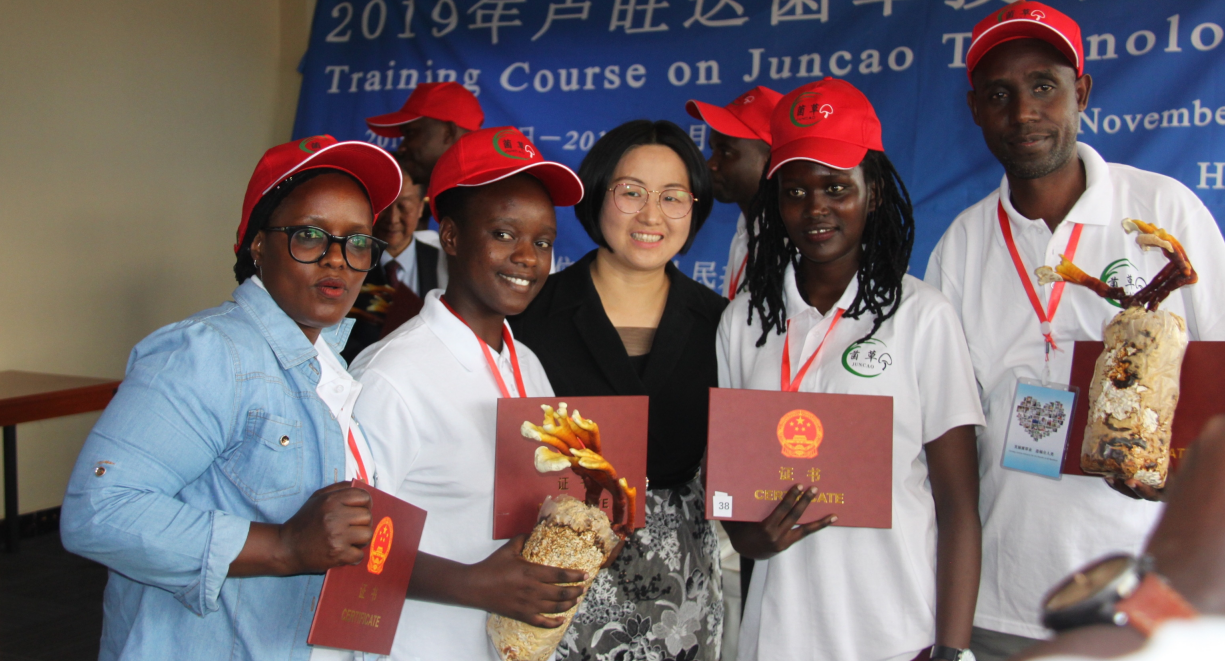
Training course on Juncao technology
During the construction of the center, a trial operation was carried out, mainly adopting "Four Combinations" and "Five Transformations" effective measures to achieve immediate results. The "Four Combinations" are combining with local natural conditions, local government needs, local people's actual situation, and local market demand.
The "Five Transformations" include localization of technology, simplification of operations, standardization of production, industrialization of management, and organization of farmers. By integrating advanced and practical agricultural technologies with traditional Rwandan agriculture, farmers can easily understand, learn, and apply them, bringing technology assistance into villages and households, improving local people's self-development capabilities, promoting poverty alleviation and wealth creation, driving local emerging industry development, and protecting the ecological environment.
2) Adapting to local conditions to leverage emerging industries
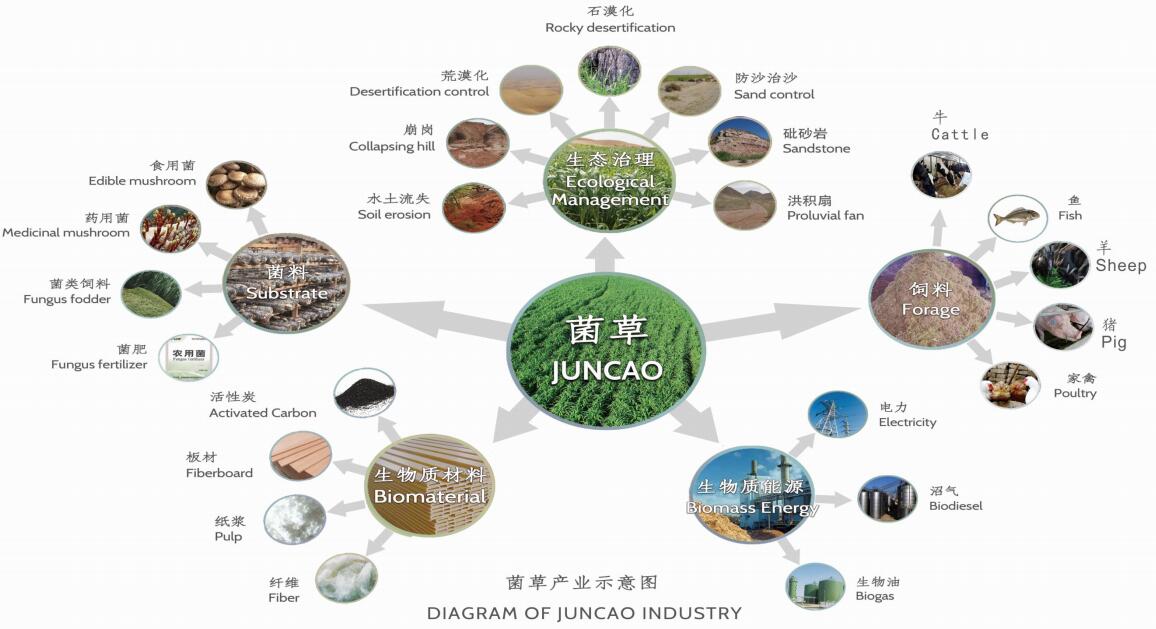
The establishment of the Juncao flagship poverty alleviation cooperative is one of the successful stories. Suitable rural areas are selected to build Juncao production bases, with the government organizing impoverished farmers to participate in production. Specially trained farmers produce mushroom bags under the guidance of technicians.
After the bags are filled with mycelium, they are handed over to the Juncao production cooperative, which allocates them to farmers for mushroom management. Under the guidance of these promoters, farmers are responsible for mushroom management with relatively low technical risks, meanwhile the mushroom farmers' self-recommended management committee is responsible for its coordination, management and sales.
The demonstration application of Juncao's new technology quickly changed the local mushroom production mode: the production cost of fungal is only 1/10 of the original; farmer’s investment to build mushroom sheds is only one percent of the original, yet the yield has increased several times. These techniques enable impoverished small farmers to participate in mushroom production, and Juncao has become an emerging value chain with high-economic and ecological benefits.
3) Implementing ecological management to relieve soil erosion
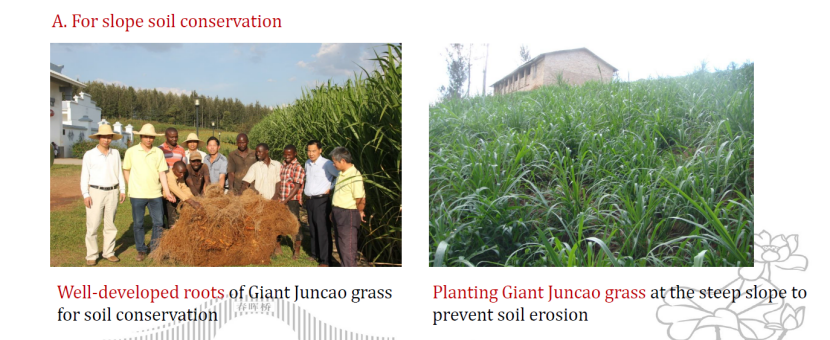
The expert group carried out feasibility study to find out suitable soil and water conservation measures for the local area. Subsequently, monitoring test areas and meteorological observation areas were established. The center established a 300-square-meter runoff field in the soil and water conservation test demonstration area. Among them, the method of using Juncao contour hedgerows to control soil erosion has achieved remarkable results, with the soil erosion of Juncao planting areas reduced by 97.1% compared to corn planting areas. A 5,000-square-meter soil and water conservation demonstration area was established, demonstrating the "slope-to-terrace" transformation and the intercropping model of Juncao and dryland crops. Bioengineering technology for soil and water conservation was applied and intercropping with local common dryland crops such as sweet potatoes, soybeans, and corn.
III. Potential Adaptability
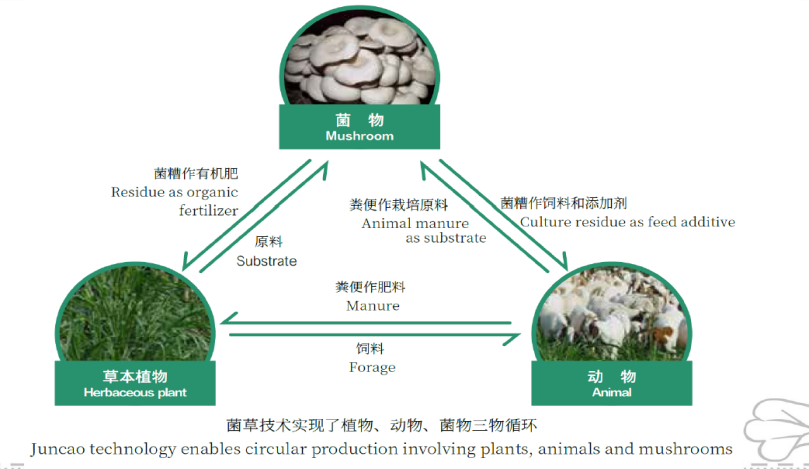
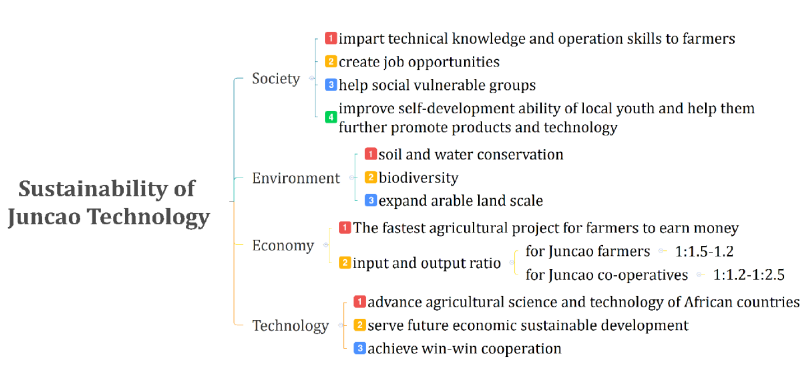
Juncao has become an emerging value chain with high economic and ecological benefits, and its influence has expanded to neighboring countries such as Congo, Uganda, and Burundi. It has explored a new path for sustainable development that combines economic growth and resource and environmental protection.

For more information, please contact WFP China COE (wfpcn.coe@wfp.org)
Category
China-Rwanda Agricultural Demonstration Center: The Application and Promotion of Juncao Technology
Contributor
The Application and Promotion of Juncao Technology in Rwanda
Country
Case Study

